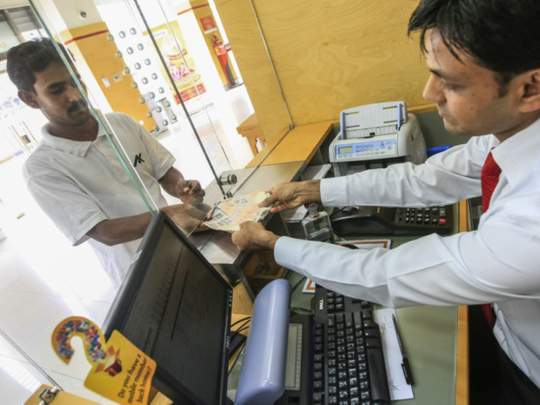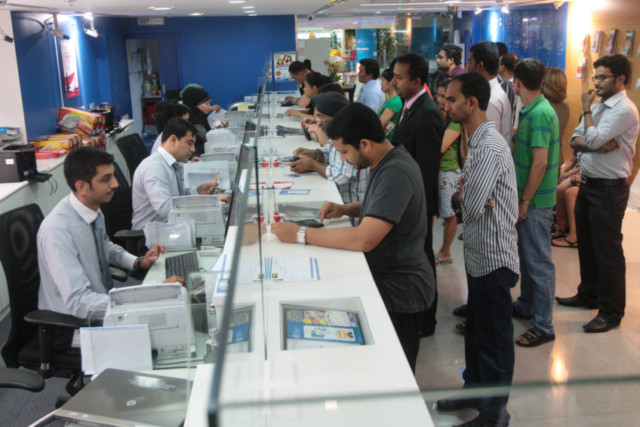
DUBAI The Foreign Exchange Remittances Group (FERG), a non-profit platform for over 60 money exchange houses in the UAE, has urged the Indian Government to carefully weigh any move to tax foreign remittances as it could hurt official channels of money flow and encourage hawala transactions.
FERG chairman and Al Fardan Exchange CEO Osama Al Rahma was speaking to XPRESS days after India’s Central Board of Excise and Customs (CBEC) announced that the Indian government has imposed a 12.36 per cent service tax on “fees or commissions” charged by banks and financial institutions to facilitate remittances from abroad.
Costs are rising
“A tax on the bank fee may not have as much of an impact as any such move with the total charges (remittances). Depending on the scenario, we expect most exchanges to pass on the burden to their customers. Their operational costs too are rising as they have to adopt to new technologies and compliance systems and consider factors like higher rentals and staff salary rises.”
He said with India being one of the biggest recipients of foreign remittances at $71 billion in 2013, pricing changes are a sensitive issue. “We have to be very cautious because when prices go up, people start using unofficial channels (hawala) to send money. This is a serious concern and we must guard against it.”
Sudhesh Giriyan, vice-president and business head of XPRESS Money said: “The last time the Indian Government made a move to tax the bank’ fees on remittances in 2012, the proposal was withdrawn following pressure from non- resident Indians.”
This time round, Al Rahma said, the pressure is likely to continue given factors like currency fluctuations and inflation rate.
Giriyan said there are four-five possibilities of how things can pan out. “The extra cost may be borne either by the sender, receiver, exchange house/operator, payout partner (banks and financial institutions) or jointly by sender and receiver. We’ll have to wait and see the outcome.”
Sudhir Shetty, CEO of the UAE Exchange, which remitted over $7.4 billion to India from 32 countries in 2013, said: “The service tax is levied on the earnings of the banks and agents on remittances. If we look at a maximum fee of Rs100 paid to these agents per transaction, a 12.36 per cent tax would work out to around Rs12, which is less than a dirham. So it is unlikely that we would pass this on to our customers.”
He said remittances to India are estimated to grow by just 1.5 to two per cent this year. “Last year, the rupee fell sharply and everyone was sending money home. This year, we will not see a big jump in remittances from workers, although a greater flow of big ticket remittances done directly through banks is expected in the medium and long term.”
Currently, most exchanges in the UAE charge a fee of Dh15-Dh20 depending on the amount remitted.













